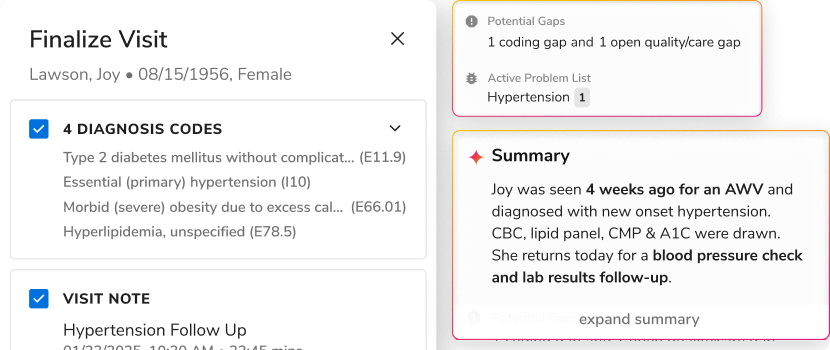Why are Primary Care Practices in the US in Trouble?

Patients need primary care the most. It is that integral part of care which is getting inaccessible and unaffordable day by day as physicians are finding it hard to stay independent.
I came across one such story of an Ob-Gyn Michael Burke, MD, who is running out of options for keeping his private practice afloat in Phoenix, Arizona. After 25 years in primary care and investing heavily in technology, Burke, 58 faces some questions almost all physicians are wary of: what next? Will they survive in the era of risk-bearing? How do they keep their practice afloat?
This isn’t just Michael. This is the story of a number of primary care physicians. Any patient’s first stop, the primary care practices all over the country are entrusted with providing quality care. But something is going wrong- the physicians are overworked, they are tired, and frankly, their fates are hazy!
The future of primary care physicians: Reality vs expectations
The primary care front has been an important one in the healthcare’s transition to quality. It’s the first place a patient goes to receive care, to get treated, and is pretty much the logical foundation of an effective healthcare system. The primary care providers (PCPs) are entrusted with advocating high-quality care, good patient satisfaction, and efficient use of resources. Patients as well, believe that a meaningful relationship between the PCP and the patient is integral, and leads to more coordinated care.
The reality, however, is grave. The U.S. could lose as many as 100,000 physicians by 2025, according to a report by AAMC- and primary care physicians could account for almost one-third of this number. The reason? Growing regulatory pressures, increasing burdens of billings and collections, steep investments into EHRs and health IT, and a good deal of data collection and management. These causes, coupled with less-than-adequate compensation, are causing more and more PCPs to either burn out or leave the field altogether.
The woes of a PCP: too much work, too little time
There’s a difference between being busy and being overworked. The physicians I know don’t mind being busy- they don’t even mind working long. But no one wants to be overworked with the feeling that they are not in control of how they are spending their time.
The problem isn’t that PCPs are busier- it’s that they are not spending time doing what they want. PCPs want to spend more time interacting with their patients, but they are struggling to manage the vast amount of data that gets dumped on them. They have to track their patients’ health, adjust their workflows, coordinate care programs across care teams, and report on clinical measures. As a result, they end up spending more time figuring out how to fulfill reporting requirements than seeing patients.
The wealth of data- with rushed schedules, piling paperwork, and rampant discontent
There is an abundance of data- from the EHRs, lab test results, the patient wearables, administrative systems, and whatnot. True, the interoperability advances have made it easier to share data and access it around the doctor’s office, but the data required is too often sent in chunks.
PCPs are just overwhelmed by the amount of data that they have. They are overloaded on data entry, yet underinformed. The static data files on the computer don’t allow physicians to track what happens to their patients unless they really delve into it- all they receive are ADT feeds. They end up modifying their workflows over and over again, capturing value from their data, and just finding needles in haystacks. And providers aren’t the only one troubled by the lack of insights into complex data. Patients too, are unable to utilize the potential of health IT due to disconnected data silos and complex, unstructured data.
The key: running towards the challenge
Healthcare is changing and it’s changing fast. Providers all over the country are stepping into risk-sharing agreements to successfully manage spending and utilization of services.
The key to sustainability is making data useful. Why is a robot performing surgery something that appears easy, but making something that automatically informs a PCP about the aftermath of a surgery, difficult? The need is to provide physicians with the flexibility and customizations to utilize their data and understand the story behind it.
The key is to coordinate care among all care practices. Primary care physicians, and all the members of the care teams, for that matter, have to understand that what happens to a patient outside the four walls of a hospital is as important as what happens while he’s under examination.
The key is steering patients towards well-being and focusing on patient outcomes. The number of chronic conditions are on the rise and is responsible for over 95% of post-Medicare spending. Action-oriented information has to be leveraged to treat them, engage them, and ensure that the patients live a healthy life- and not just disease-free life.
The road ahead
Primary care physicians are the torch bearers of the future of an affordable healthcare. Not only they are an avenue for high quality care, they are the first step towards preventive healthcare. But as long as these physicians are plagued with unstructured, unhelpful data, the challenges of healthcare will only grow. Every time a PCP feels burdened just by humongous chunks of data and little insights, we take a step back on our journey to an affordable and equitable healthcare. It’s time we changed that. It’s time we let physicians be physicians.
To know more about how primary care practices can turn the bane of too much data into a boon, get a demo.
For more updates, subscribe.
Join Team Innovaccer at booth #1210 this Becker’s Hospital Review 9th Annual Meeting, from April 11 to 14, at Hyatt Regency, Chicago, Illinois and learn how we can assist you in delivering an efficient, data-driven healthcare.

.png)





.png)









.svg)
.svg)

.svg)

